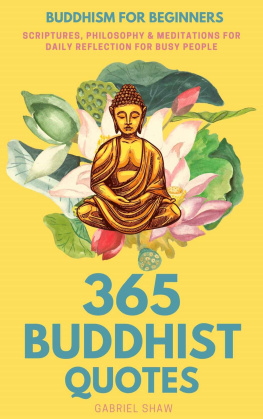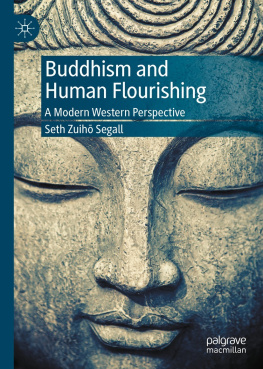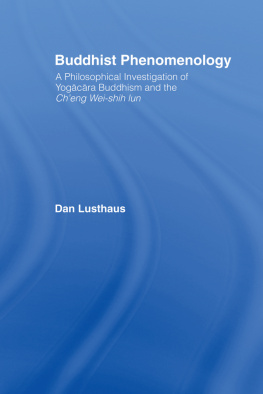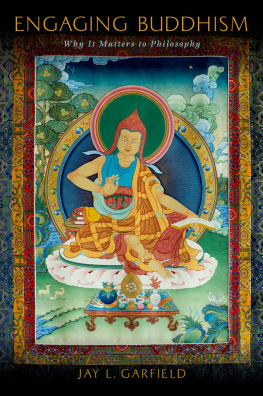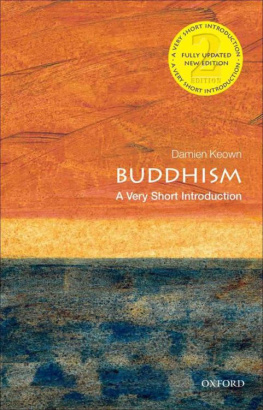A Critique of Western Buddhism
Also available from Bloomsbury
Buddhism and Iconoclasm in East Asia, Fabio Rambelli and Eric Reinders
Buddhism in America, Scott A. Mitchell
Encountering Buddhism in Twentieth-Century British and American Literature, edited by Lawrence Normand and Alison Winch
Silver Screen Buddha, Sharon A. Suh

Contents
The blog Speculative Non-Buddhism (www.speculativenonbuddhism.com) provided me with a venue for experimenting with and thinking through many of the ideas developed in this book. I am grateful to the many participants on that blog for creating a passionate and productive site of ideological struggle.
Tom Pepper read several versions of the manuscript and always offered trenchant and astute comments. I am fortunate to have someone with his intelligence and ardor as a reader.
Lalle Pursglove and Lucy Carroll, my editors at Bloomsbury, have been unfailingly gracious and helpful during the course of producing this book. I would like to thank them for their encouragement and professionalism.
My wife, Friederike Baer, and two daughters, Alexandra Wallis and Mia Wallis, have always been my most insightful partners for discussions. Our topic of conversation was not, of course, always explicitly the contents of this book. But when youre absorbed in a creative project, somehow everything around you takes on the hue of its problematic. The book was conceived during long walks in the Swiss Alps with Alexandra. It developed further during walks in the park with Mia, accompanied by our dogs Oscar and Bruno. Knots were smoothed out and concepts clarified over Kaffee und Kuchen with Friederike. The three of themAlexandra, Mia, and, Friederikealways ask the most difficult and probing questions, the kind that helped me and my thinking to become more, well, real.
A ruin
Western Buddhism is not a ruin. It is a sprawling estate, operating daily at peak capacity. Western Buddhism is a prodigious ancillary of an ancient edifice that, as Simmel says of palaces, villas, and farmhouses, even where it would be best to fuse with the atmosphere of its surroundings, always originates another order of things, and unites with the order of nature only in retrospect. Why should it be best to do so? Western Buddhism itself provides the answer: because there is no real division between culture, society, person, and nature. The Buddha has taught us that it is nature all the way through. He also taught us that the very nature of nature inexorably impels ourthe worldsvery ruination. Ruin is ruin because our desires and actions, however exalted, cannot withstand the nonnegotiable consequences of impermanence, dissolution, and emptiness. And yet, somehow, the edifice that is Western Buddhism does not merely remain in place: it stands fortified against the consequences of its own self-acknowledged insights into our natural condition. In doing so, it originates an order, both for itself and for its practitioner, that is at odds with these very insights. For, to fuse with the order of nature only in retrospect is to create the illusion that it does not fuse with nature at all. It creates the illusion that the object of Western Buddhisms fusionthe object of its most abiding desireis of an altogether different order from natures ruin. It is, rather, of a higher order that somehow enables escape from the raw contingencies of naturethe very ones that Buddhism itself articulatesleaving the subject ultimately unscathed.
The term for nature that I use in the subtitle and throughout the book is the Real. Like Western Buddhisms emptiness or no-self, in the history of Western thought, the Real names some profoundly productive a priori, awareness of which is a sine qua non of human awakening and of the liberation that such awakening is said to entail (however variously those consequences might be understood). Paradoxically, the Real is as evasive as it is productive, eluding capture by our strategies of linguistic and symbolic communication. Of course, it is we creaturely humans who enable this evasion by constructing obfuscating, at best, symbolization around the nonetheless fecund Real. In his twentieth-century masterpiece of literary criticism, The Origin of the German Tragic Drama, Walter coursing through the veins of earthly creatures? Such questions merely postpone my conclusion: Western Buddhism must be ruined.
This, at least, is the belief animating this book. I have come to this belief after forty-some years of actively surveying the Western Buddhist landscape. At turns figuratively and literally, my exploration has taken me from the tropical forests of the achans to the austere rusticality of the roshis to the stark mountainous terrain of the rinpoches. It has taken me from the temple to the practice center to the university classroom. It has enveloped me in the exertion of several practices, each of which is deeply contemplative in the degree of steady concentration involved: still, silent meditation; laborious reading of Pali, Sanskrit, and Tibetan texts; and, the most difficult of all, sustained and unflinching critical thinking. Why is critique so difficult? Well, it is not only philosophers who fall in love with their subject. That love will ensure that the critique that follows does not obliterate, does not grind back to dust, the finely wrought edifice of Western Buddhism. And if I do succeed in my plan, it is only to view the ensuing ruin in the glow of a stranger, more creaturely, light.
I have learned a lot about ruin from the people I mentioned earlier. Another teacher not mentioned is the Persian Muslim poet Jall
I first heard Leonard Cohen in 1975 while in the room of my friend, Thomas Adams, who had then borrowed the album Songs of Love and Hate from a local library. At that point in our lives, Thomas and I were drinking from the trough of Alice Cooper, the New York Dolls, and Black Sabbath. Yet, we sat in rapt silence as the black vinyl turned, slowly secreting the passionate, melancholy ambience that is Leonard Cohenhis voice, his guitar, his verse. One of those verses, from the first song on the record, Avalanche, could be the Universal Beloved inciting Rm to ecstatic embrace. Or is it Shams, the mysterious dervish perpetually wandering in search of a beloved friend, someone with whom he could speak of secret things? Its impossible to say. Both masters wield double entendre It is a disturbing, almost ghastly, line. But can you conceive of a more direct and unadorned image of union born of annihilation? Imagining that ruined building once again, I picture it obliterated as an edifice for narrow worldly concerns (commerce, service, bureaucracy) because it has become clothed in the flesh of nature.
Thomas and I intravenously ingested Leonard The three of us began imperceptibly to mix the dark elixir of Leonard Cohen and the volatile firewater of the Stooges with a form of music that would come to define our lives: punk rock. Like so many young people in search of an expression for their still nascent superpowers, we formed a band. Joined by like-minded insurgents of the moribund American middle class, we unleashed our Dionysian energy, power, passion, and heat on the Philadelphia (and beyond) underground from 1981 to 1987. The name of our band is Ruin. (Present tense: like an alcoholic, you are never cured of your band.)
With love and with inexpressible gratitude, I dedicate this book to the members of Ruin: Damon Wallis, Thomas Adams, Cordy Swope, Richard Hutchins, and Paul Della Pelle.



